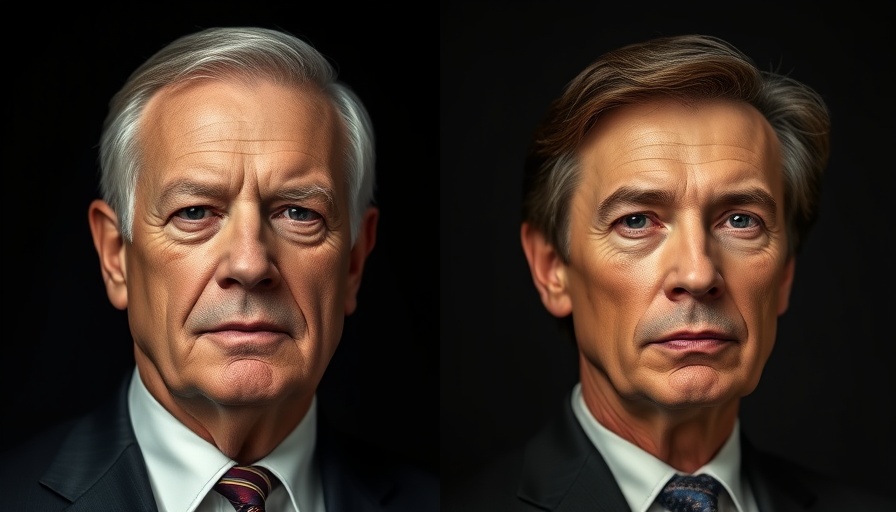
Understanding the Complexity of Russia's Stance in the Ukraine Conflict
The ongoing Ukraine conflict has drawn the global spotlight for its implications on international relations and security. Following a recent phone call between Russian President Vladimir Putin and former U.S. President Donald Trump, the Kremlin has made it clear: Russia will not retreat from its war goals in Ukraine. As tensions remain high, both leaders' perspectives offer insight into the complex dynamics shaping this conflict.
Trump and Putin: A Diplomatic Approach to Conflict Resolution
The phone call, described as 'frank and constructive' by Kremlin officials, revolved around multiple issues, including the situation in Iran, the broader Middle East, and of course, Ukraine. During the conversation, Trump urged Putin to strive for a peaceful resolution, reflecting the U.S.'s consistent call for dialogue over aggression. Yet, the surprising element was Putin's unwillingness to back down on his military objectives in Ukraine, indicating a strong commitment to achieving his defined goals while maintaining a façade of diplomatic engagement.
The Persistence of Military Objectives
Yuri Ushakov, Putin's foreign affairs adviser, emphasized after the call that Russia’s objectives in Ukraine remain unchanged. The focus, according to Ushakov, is on addressing the “root causes” of the conflict, suggesting that Moscow sees the conflict as deeply entrenched and requiring a more profound solution than either side currently faces. This sentiment underscores a fundamental challenge in international diplomacy today: reconciling military objectives with the urgent need for peace.
Implications for Global Diplomacy
The implications of this phone call resonate beyond the immediate conflict. As nations take sides, international coalitions are forming, and potential shifts in alliances may emerge. The U.S. has positioned itself as a defender of Ukraine integrity, while Russia's steadfastness in pursuing its goals reflects a broader narrative of defiance against perceived Western encroachment. Given recent military engagements, including U.S. strikes on Iranian sites, geopolitical tensions are rising, adding to the unpredictability of the conflict’s trajectory.
Local Perspectives: The Impact of Global Decisions
For those in the U.S., particularly in political and social spheres, the ramifications of Trump and Putin's dialogue may shape national discourse surrounding foreign policy. Americans often find themselves contemplating the heavy price of conflict, not just in terms of lives but also in economic and political stability. Understanding the complexities of foreign leadership dynamics, like that of Trump and Putin, can foster more informed discussions among the public and policymakers.
Future Predictions: A Path Forward or Stagnation?
What lies ahead in the Ukraine conflict is steeped in uncertainty. With Russia affirming its stance and the U.S. urging for a diplomatic resolution, the possibility of prolonged conflict seems ever-present. If both nations maintain their current trajectories, the geopolitical landscape may emerge as a battleground for competing ideologies and national interests.
The Uncertain Role of the U.S. in Global Conflicts
With the Trump presidency poised to make impactful decisions regarding foreign policy, the U.S. must navigate its role in this contentious scenario. Trump himself has expressed dissatisfaction with the ongoing situation in Ukraine, indicating that while the U.S. is prepared to engage diplomatically, the stakes may involve increased pressures on Putin from both the American and international communities.
Concluding Insights: Balancing Diplomacy and Military Power
The conversation between Trump and Putin brings to light the delicate balance between diplomacy and military action in international relations. As each country seeks to achieve its objectives, the balance of power will continue to remain a central theme in the discussions surrounding Ukraine. Understanding these dynamics can empower citizens to advocate for policies promoting peace and stability, while also educating them about the far-reaching implications of their country’s foreign policy decisions.
 Add Row
Add Row  Add
Add 




 Add Row
Add Row  Add
Add 

Write A Comment